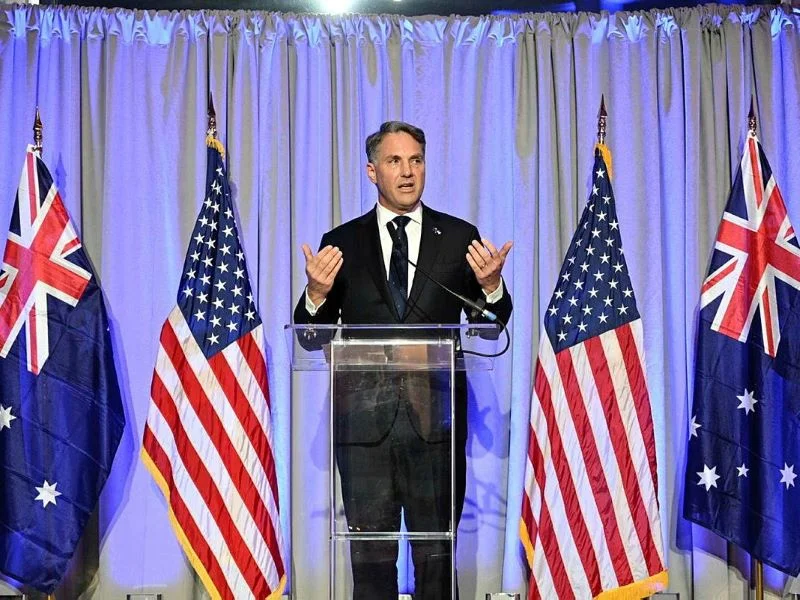The federal government will consider widening the defence export controls regime to capture the supply of any goods and services that may prejudice the national interest and new $50 million fines for non-compliance to demonstrate Australia’s “seriousness of resolve” to the US.
Defence minister Richard Marles on Wednesday tabled a review of the of the Defence Trade Controls Act 2012 and the government’s response to it, adding more confusion to hasty AUKUS fuelled reforms to how Australia regulates the supply of sensitive technologies.
The review was completed in December but only provided this week as a bill to overhaul the defence export regime sails through Parliament’s lower house, despite the concerns of smaller businesses and research groups.
The government has agreed, at least in principle, to all 10 of the review’s recommendations. But it notes many will be considered in the context of the latest Defence Trade Controls Amendment Bill and the tighter requirements for working with non-AUKUS partners it brings.

On Wednesday morning, the Defence Trade Controls Amendment Bill 2024 passed the House of Representatives, paving the way for AUKUS inspired changes to Australia’s Defence Trade Controls.
Hours later, Mr Marles tabled a review of the current regime completed last year that would expand the regime even further.
The independent review of the Defence Trade Controls Act said Australia’s strategic circumstances had changed significantly since the last review in 2018 and that a business as usual approach was “not fit for purpose”.
The review recommends further legislative changes to “include an over-arching provision covering the supply of goods, technology, and related services that may prejudice Australia’s national interest but are not captured on the Defence and Strategic Goods List (DSGL)”.
The DGSL covers the controlled items that require a permit, unless there is an exemption, when exporting, supplying, brokering or publishing.
It includes military and dual use technologies, but was last updated in 2021 and is not a “nimble” enough regulatory approach, the review found.
A proposed new provision would capture the export of non-DGSL goods if they “have the potential to enhance the military capabilities of another country or otherwise to prejudice Australia’s national interest”.
The government agreed in principle to the recommendation, saying the regulatory framework “should appropriately capture goods, technology and related services of concern”.
But consideration of the new provision, which would require more changes to the Act, will need more consultation in the context of the current changes, the government response said.
“The Albanese Government is committed to ensuring the Australian export control regime remains fit-for-purpose in a rapidly evolving strategic environment,” Defence minister Richard Marles said.
The review also called for tougher penalties including $50 million fines and imprisonment, after finding the current penalties may not be enough of a deterrent.
“We propose increased, but still scaled, penalty provisions (e.g., infringement notices, substantial civil penalties, criminal sanctions including jail sentences) consistent with the ‘in terrorem’ principle to demonstrate (including to the US) seriousness of resolve,” the review said.
The review also recommended new more monitoring and investigative powers for the Department of Defence to invigilate and enforce compliance with the trade controls, something that was recommended in the 2018 review but never actioned by the former government.
Defence’s technology systems also need to be upgraded to improve the permitting process, with the review recommending an upgraded client management system to reduce manual work under potentially more applications and compliance checks.
The review also recommends widening the definition of basic scientific research to align with the US system. It focuses on activities that ordinarily result in publishing and gives more room for applied research compare to Australia.
The Department of Defence did not respond to questions about the review or its impact on the current reforms when approached multiple times by InnovationAus.com earlier this month.







